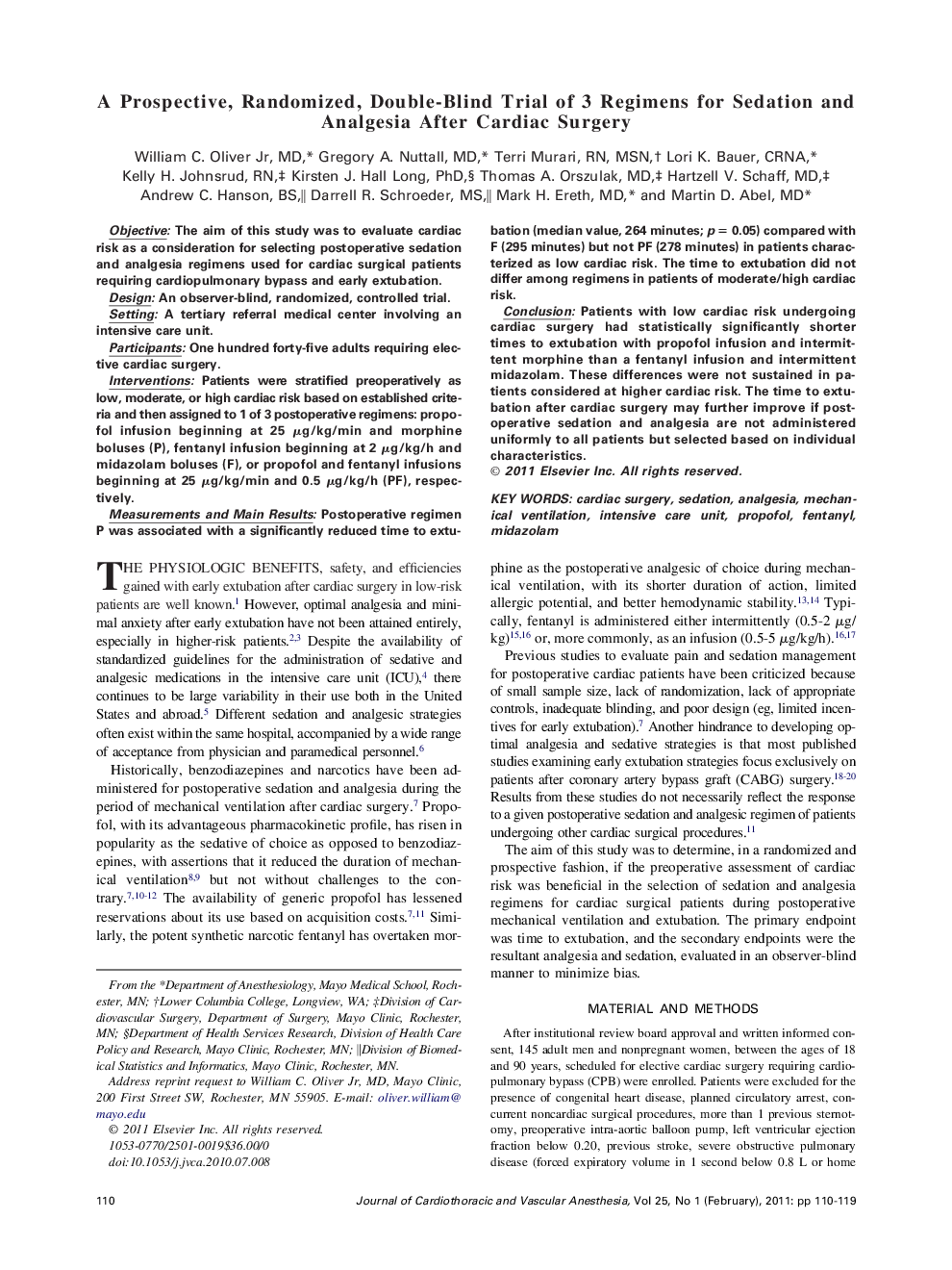| Article ID | Journal | Published Year | Pages | File Type |
|---|---|---|---|---|
| 2760102 | Journal of Cardiothoracic and Vascular Anesthesia | 2011 | 10 Pages |
ObjectiveThe aim of this study was to evaluate cardiac risk as a consideration for selecting postoperative sedation and analgesia regimens used for cardiac surgical patients requiring cardiopulmonary bypass and early extubation.DesignAn observer-blind, randomized, controlled trial.SettingA tertiary referral medical center involving an intensive care unit.ParticipantsOne hundred forty-five adults requiring elective cardiac surgery.InterventionsPatients were stratified preoperatively as low, moderate, or high cardiac risk based on established criteria and then assigned to 1 of 3 postoperative regimens: propofol infusion beginning at 25 μg/kg/min and morphine boluses (P), fentanyl infusion beginning at 2 μg/kg/h and midazolam boluses (F), or propofol and fentanyl infusions beginning at 25 μg/kg/min and 0.5 μg/kg/h (PF), respectively.Measurements and Main ResultsPostoperative regimen P was associated with a significantly reduced time to extubation (median value, 264 minutes; p = 0.05) compared with F (295 minutes) but not PF (278 minutes) in patients characterized as low cardiac risk. The time to extubation did not differ among regimens in patients of moderate/high cardiac risk.ConclusionPatients with low cardiac risk undergoing cardiac surgery had statistically significantly shorter times to extubation with propofol infusion and intermittent morphine than a fentanyl infusion and intermittent midazolam. These differences were not sustained in patients considered at higher cardiac risk. The time to extubation after cardiac surgery may further improve if postoperative sedation and analgesia are not administered uniformly to all patients but selected based on individual characteristics.
